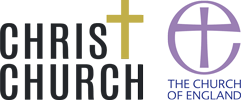27 Jun Sunday Service – Petertide Service – by Rev’d Mark Eminson
Petertide, in the contemporary Church, is the preferred time for ordinations. The small-print of my diary is littered with my own and friends’ anniversaries of ordination during these days; in fact, today is my twelfth anniversary of ordination as a deacon and eleventh anniversary as a priest! Of course, this year, ordinations join the list of carefully-laid plans and special celebrations that have been thrown up in the air and delayed during the pandemic. For those due to be ordained it will only be a temporary delay in responding to God’s call in their lives. One wonders whether the pandemic has more drastically derailed some people’s sense of vocation. Or, in other cases, whether it has given a sharp focus and intensity leading to a deepened sense of God’s will and purpose for them. Peter – and Paul, with whom Peter shares the feast of 29 June – two great pillars of the Church, both had a strong sense of God’s call, though it was by no means always plain sailing.
Download the order of service [ PDF ].
Download the collect and the reading [ PDF ].
In the famous Gospel passage, Simon’s bold declaration of Jesus’ identity leads to his being christened Peter, the rock; a strong foundation against which the gates of hell will not prevail; holder of the keys of the kingdom. Brothers and sisters, do we feel rock-like and unconquerable?! Mercifully, we know enough of Simon Peter’s history to recall that sometimes he started to sink and fear got the better of him.
I am also thinking of Peter as opposed to Paul with patronals on my mind; having had Trinity Sunday, we now have a nod in the direction of Holy Trinity’s more recent patron, St Peter, the name of the church which joined the parish in the 1970s. At the start of this year, I received a letter from an old church-friend in Brighton who grew up in the parish of St Peter, South Wimbledon, in the fifties and sixties and described what sounded like a healthy living community: memories of serving, delivering parish magazines and a new church hall. The fact that this Anglican church closed within twenty years from this point is sobering and begs the question of which church will prevail against the enemy’s gates?
I am reminded of the principal’s charge to the new ordinands when I started theological college (have others found waves of memory and nostalgia or strange vivid dreams flood over them in these days?!); the principal pointed out to us that we began our journey of formation for ministry next to a closed church; next to apparent failure! There was a hint of drama here and a serious point about cross-shaped lives, but our Lord’s promise does not necessarily apply to every community and every building across the ages. And, back to today, I saw reports about our new Archbishop of York heading up a review of numbers of bishops and church buildings with a view to stripping back. Like pubs, restaurants, shops, businesses, will there be some churches which do not re-open; which are casualties of the present crisis? Can we believe we are completely immune from the realities and hardships of wider society; and even ought we to be so immune?
So, it is the question, which church conquers and prevails? Peter himself in prison helps us with an answer. We have been confined to the prisons of our homes, but this has not chained our prayer. And it may even be that our Christian call, our faith, our renewed sense of vocation are alive and well: belt fastened, sandals put on, cloak wrapped round, ready for action. The description of Peter’s dress not only communicates a gospel preparedness and urgency, but it also evokes deeply his – and our – call.
The phrase about Peter fastening his belt recurs at the conclusion of John’s Gospel, culminating in the same command; in John, not from an angel, but from the Lord Jesus himself: “follow me”. In John, the belt allusion consists in Peter being led where he would not choose to go, ultimately, to his martyrdom. We haven’t chosen the path of pandemic, lockdown, cancelled plans, livelihoods imperilled, vocation and identity impaired. “Simon, son of John, do you love me?” We, like Peter, are simply asked this: in whatever situation we find ourselves, do we love the Lord Jesus? And, however uncertain the road looks, will we follow Him? This is the rock, the Church, which prevails: the Christian disciple and the Christian community which hear the call of the Lord Jesus, which love Him, which follow Him, beyond the gates of Hades to the kingdom of heaven.





Sorry, the comment form is closed at this time.